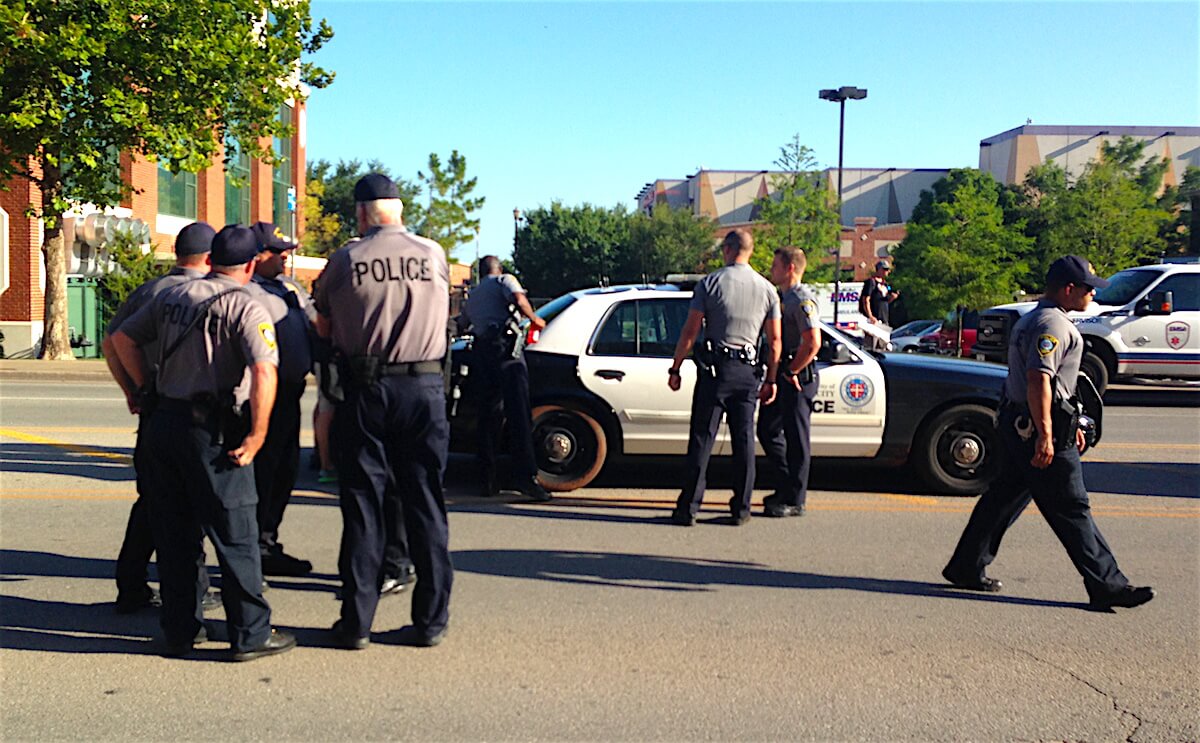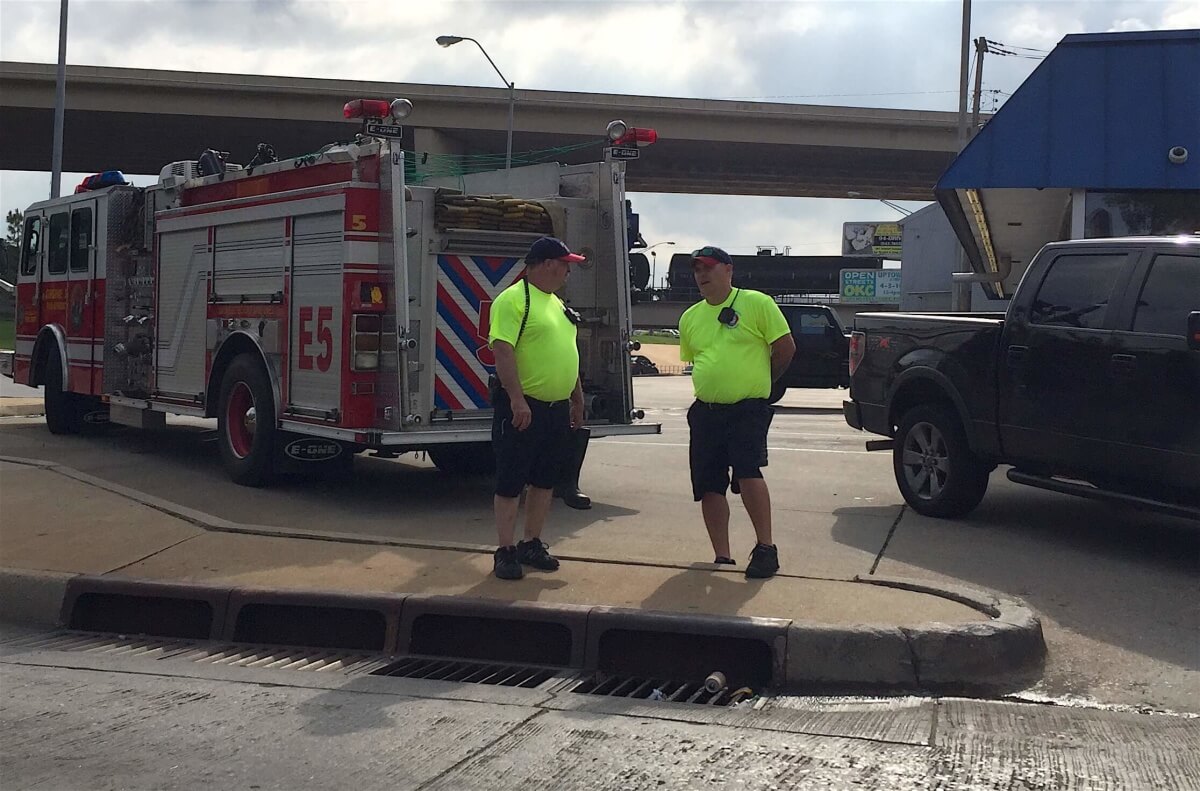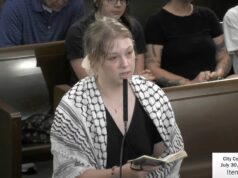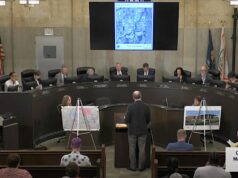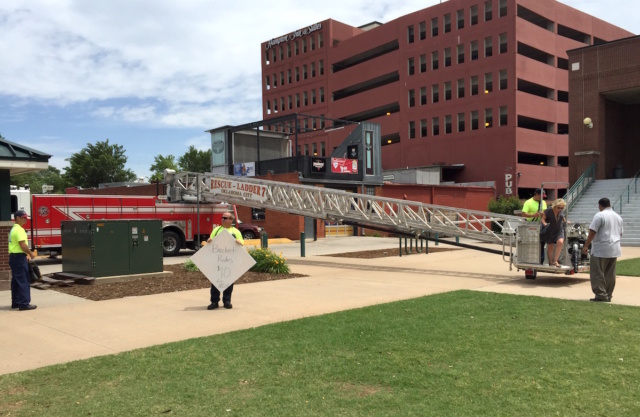

(Update: This post was updated at 1:55 p.m. Tuesday, Aug. 2, to include comment from OKC assistant city manager M.T. Berry. It was updated against at 2:20 p.m. to include comment from IAFF Local 157 president Scott Van Horn.)
After months of negotiations and arbitration hearings, the City of Oklahoma City and the Local 157 International Association of Fire Fighters have been unable to reach a contract agreement.
Instead, they will punt the issue to the voters of Oklahoma City.
Tuesday, the Oklahoma City Council voted to set a special election for Jan. 10, 2017, wherein voters will choose between the last two versions of the proposed contract.
At 11:25 a.m., OKC Mayor Mick Cornett, City Manager Jim Couch and the City Council emerged from a lengthy executive session and called for the public election with little fanfare.
Cornett, Couch and others hardly explained the issue at all, either before or after the executive session.
Couch said item IX section Q of Tuesday’s agenda dealt with the city’s contract with the firefighters’ union, and Cornett sped through the required votes to set the special election date.
“We’re adjourned,” Cornett said after a quick succession of unanimous votes. “Thanks, everybody.”
What’s at stake in the firefighter contract?
The city and the fire union negotiate their contracts annually, and the relationship between the two entities has long been heated.
A 2009 series by NewsOK.com titled Burning through money highlighted some of the city’s attempted reforms of its firefighter contract.
Some of those issues remain a point of contingency today and appeared at odds in the “last best offers” proposed by the city and the IAFF, said assistant city manager M.T. Berry.
“We got an adverse decision out of the arbitration, and the options to the city at that time were to either comply with the arbitration award or take it to a vote of the people,” Berry said. “We would have much rather been able to work this out during the regular contract negotiations process. We’re not happy with it, but it is part of the collective bargaining process, so we’ve exercised another option that is available to us.”
IAFF Local 157 president Scott Van Horn also expressed displeasure with the issue going to a vote of the people.
“Very interesting day, to say the least,” Van Horn quipped. “The arbitrator decided our offer was cheaper, called their math fuzzy, and now I guess they think they can trick the public into it by trying to beat us up.”
Berry said a similar election date was set in 2009 to let citizens decide which “last best offer” they preferred that year, but a dispute over ballot language ultimately prevented the election from happening.
He listed three main differences between the city and the IAFF’s contract proposals this time around.
“One was, we proposed to eliminate overtime pay when firefighters were on personal leave,” said Berry, who retired as chief of the Oklahoma City Police Department in 2003. “We also proposed to civilianize the fire dispatch work section. Currently, firefighters manager their dispatch, unlike the police (department which hires civilians).”
He said the third issue related to city contributions to the firefighter health insurance plan. The IAFF’s proposal for city contributions was actually lower, Berry said.
Van Horn contended that more than just the insurance part of the IAFF offer was lower.
“Our offer was lower,” Van Horn said. “I heard one reporter showed up and said they said you’re making time and a half when you take off. That’s not true.
“It’s a hard thing for people to understand.”
Berry said cost savings under the city’s proposal would be just above $1 million. The fire department’s entire budget is about $155 million.
“We do believe that we have a fiscal responsibility to the taxpayers that we try to minimize our cost exposure in areas where we believe we can,” Berry said.
Van Horn said the complex nature of the United States’ firefighter labor agreement may be confusing to some, but he argued that the dispatch issue is also being mischaracterized by the city.
He said hiring nine civilian dispatchers — and placing them on the police department’s payroll — would ultimately cost the city more money because they would not be laying off firefighters at the same time.
“It’s just a way for them to spin this election,” Van Horn said.
A city news release sent out at 5:20 p.m. said the city will pay about $100,000 to finance the special election.
The development with OKC’s fire union contract comes as the city continues to negotiate its annual contract with the OKC Fraternal Order of Police, which disagrees with the city’s proposed policy for reviewing officer body-camera footage.
RELATED
August agreement possible for OKCPD body cameras by William W. Savage III
RELATED
Boot half empty: Median rule hinders MDA fundraiser by William W. Savage III









